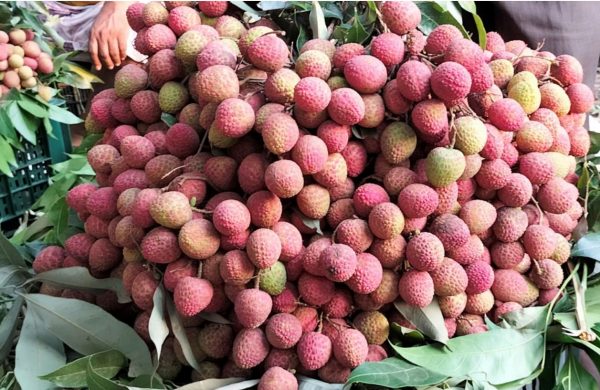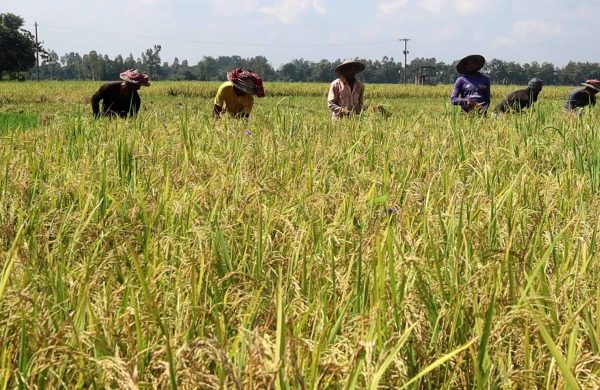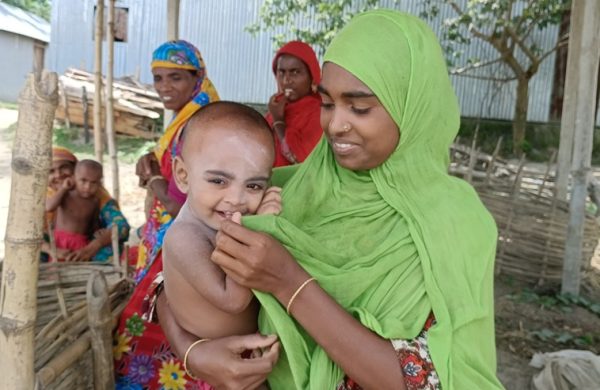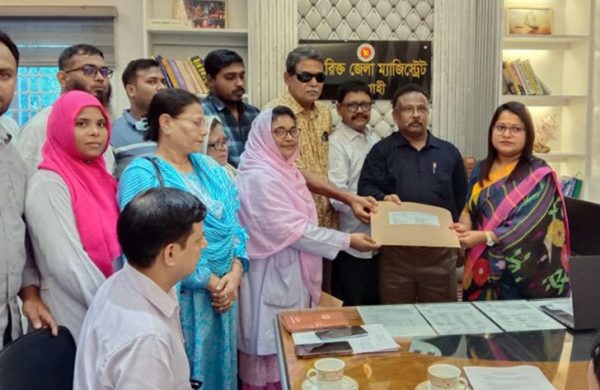Unfavorable weather hits harvest of mangoes, litchis in Rajshahi, Dinajpur
- Update Time : Monday, June 3, 2024

TDS DESK:
Agricultural officials say climate change has had an adverse impact on weather condition that resulted in poor yield of mango and litchi.
Harvest of mangoes and litchis fell in Rajshahi and Dinajpur this year due to unfavourable weather including heatwaves, farmers say.

Agricultural officials say climate change has had an adverse impact on weather condition that resulted in poor yield of mango and litchi.
Delayed bud emergence and reduced bud count plagued mango trees in Rajshahi’s Barind region this year. Following the appearance of buds, hailstorms in the area caused some to fall, while many others rotted. Despite these setbacks, the intense heat in April led to further fruit loss. Finally, Cyclone Remal dealt a final blow, causing widespread mango damage across Rajshahi.
Alim Uddin, a former chief scientific officer of the Fruit Research Station of Rajshahi, while talking to this correspondent, explained that weather patterns significantly impacted mango yields.
“A bountiful mango harvest one year is typically followed by a natural decline in fruit production the following year. This year, the prolonged winter resulted in reduced bud formation on trees, and the subsequent heatwave further affected mango yields. Overall, this year has been an off-season for mangoes,” he said.
While the yields of Gopalbhog, Himsagar, and Lakhna mangoes have declined this year, Bari Am-3, Bari Am-4, and Bari Am-11 have produced satisfactory yields, Alim said. The sale of these mangoes is helping to offset the losses incurred from the lower yields of other varieties, he said.
Rajab Ali, who owns a mango orchard spanning approximately 60 bighas in Charghat, said this year his mango yield has been halved compared to the previous year.
Wazed, a mango farmer from Charghat, cultivates various mango varieties on his 20-bigha orchard. He said, “We must persevere in the face of natural disasters.”
Litchi production in Dinajpur:
According to farmers and agricultural officials, litchi cultivation in Dinajpur has had an adverse effect due to unfavourable weather caused by climate change this year. Litchi fruits are cracking and splitting prematurely due to the harsh weather conditions, they say.
The litchi growers say the heatwave scorched litchi buds, followed by fruit drop during the intermediate stage. In the final stages, litchi fruits split prematurely before ripening, they say. Overall, litchi production in the district is likely to decline by at least 30% this year, say the growers.
Matiur Rahman, a farmer from Biral upazila in Dinajpur, has been cultivating 600 litchi trees since 1998. He said the intense heatwave has caused widespread losses for farmers this year.
“This year, the number of flowers was the highest in the last decade. However, the heatwave persisted since the beginning of the season. Despite following the advice of the agricultural department and watering the trees, the damage could not be prevented. This is the worst situation in the last five years.”
Zafar Iqbal, a training officer at the Department of Agricultural Extension in Dinajpur, acknowledged that adverse weather conditions are causing a decline in litchi production.
He said, “Rainfall has been scarce this year, and temperatures have risen. The soil lacks the moisture it requires, leading to a slight reduction in litchi yield. This is primarily an effect of climate change.”













